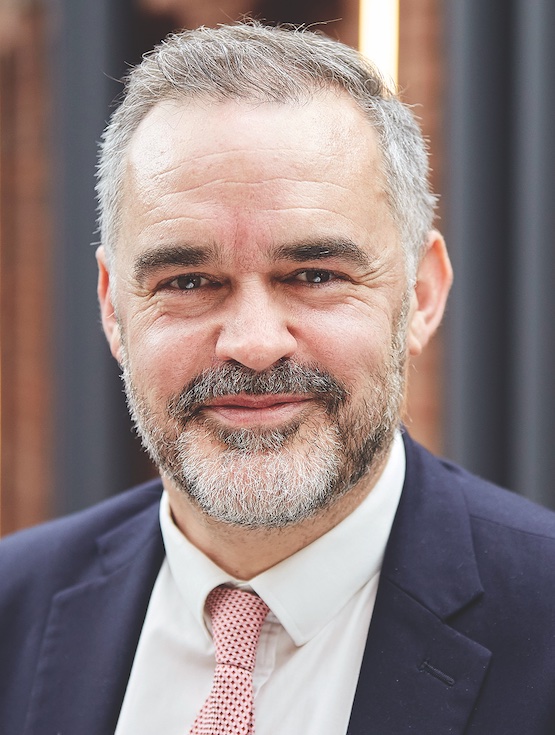Summit 2018 – Bringing joy to the workplace

Marie Gabriel, the chair of East London NHS Foundation Trust (ELFT), led a Management Life workshop on promoting staff health and wellbeing at the MiP Members’ Summit on 6 November. The trust, which provides mental health and community services to some of the capital’s most deprived communities, has won widespread acclaim for its innovative approach to staff engagement and employee wellbeing.
Gabriel, who has held senior posts in the NHS and not-for-profit organisations for more than 20 years, explained how her trust had adopted a system-wide improvement approach, which involved identifying and tackling factors that undermined staff wellbeing, working to reduce violence against staff, and launching a proactive “Joy at Work” programme.
The ELFT carried out a survey into the incidence and causes of stress and depression, using the HSE definition of stress: “an adverse reaction people have to excessive pressures or other types of demand placed on them”. The survey took account of the fact that stress affects people differently, and that factors like skills and experience, age or disability can all affect how employees cope with workplace pressures.
The survey, which concluded in February 2018, found that over a twelve month period staff suffered an average of five episodes of stress or depression that were work-related, but a “staggering” 362 episodes that were not related to work, Gabriel said.
ELFT then invited 300 staff who had been absent due to stress to an externally-facilitated stress work-shop lead by staff from the mental health charity MIND.
The key workplace stressors identified by the group were:
- staff shortages
- the behaviour of managers
- the trust’s sickness absence procedure
- workplace systems and facilities
- lack of communication within the trust
- inadequate support from HR
- the management of organisational change
- health and safety issues
- personal security
But the research revealed that by far the biggest cause of stress for employees were financial problems outside the workplace, Gabriel explained.
ELFT has introduced a raft of changes to try and reduce the physical, mental and financial causes of workplace stress, anxiety and depression, Gabriel said. These include “Be Well Thursdays”, health MOTs for staff, and health improvement sessions. The trust also adopted a more “family friendly” HR policy and introduced an employee assistance programme delivered by the leading staff wellbeing consultancy, CiC.
Gabriel said it was also important for the trust to respond to the financial concerns raised by staff, and it now provides access to interest-free loans and credit unions, childcare vouchers and holiday play schemes.
Finally, delegates heard about the trust’s “Joy at Work” programme – a four step process designed to ensure that every employee at ELFT enjoyed their work and felt valued in their job. Staff were asked first asked what mattered to them most, and then the individual impediments to staff wellbeing were identified and plans drawn up to tackle them. Further stages in the programme involved making sure that staff at all levels were fully committed to the scheme, and the use of improvement science techniques to build on wellbeing achievements.
|
MiP Chief Executive Jon Restell responds to Health Secretary’s package of NHS reforms.
15 November 2024
| By Jon Restell
News
|
|||||
|
The new government has an ambitious ten-year plan to transform the NHS by shifting care closer to home and tackling the UK’s poor record on public health and prevention. But with multiple short-term challenges and little money to spend, ministers will need more than goodwill and good intentions if they’re to turn those ambitions into reality.
15 October 2024
| By Sarah Woolnough
Analysis & opinion
|
|||||
|
Agenda for Change, introduced 20 years ago, was supposed to put an end to inconsistency and unfairness in how NHS staff are paid. But staff shortages and tight budgets mean many staff are now graded below the level of the work they’re doing. It’s time to modernise the system, says Rhys McKenzie.
07 October 2024
| By Rhys McKenzie
Feature
|
|||||
|
Steve McManus’s work developing the leaders and managers the NHS needs for the 21st century has caught the eye of national leaders. The Royal Berkshire trust chief executive talks to Matt Ross about transforming services, developing leaders and the right way to regulate the management profession.
24 September 2024
| By Matt Ross
Interview
|
|||||
|
MiP has welcomed moves to speed up pay progression for Band 8 and 9 managers and tackle long-standing problems with the Agenda for Change pay system that deter staff from seeking promotion.
23 September 2024
| By MiP
News
|
|||||
|
Special Report: People in public-facing jobs are being confronted by more violence and abuse at work, and the NHS is at the sharp end. Existing policies are failing – we need a more co-ordinated and energetic approach to tackle the root causes and protect the staff who care for others.
18 September 2024
| By Craig Ryan
Feature
|
|||||
|
MiP has welcomed a 5% pay rise for very senior and executive senior managers in the NHS in England, after the UK government accepted the latest recommendations from the Senior Salaries Review Body (SSRB).
09 September 2024
| By MiP
News
|
|||||
|
MiP has welcomed the 5.5% pay rise for NHS staff on Agenda for Change as “a notable shift” and a “good starting point” for future negotiations.
04 September 2024
| By MiP
News
|
|||||
|
Reflecting on our own assumptions and behaviour is the first step towards inclusive leadership, writes Ramima Khanam. By putting ourselves in other people’s shoes and learning from conversations we can help to create more inclusive and productive workplaces.
18 July 2024
| By Ramima Khanam
Feature
|
|||||
|
Being made redundant or looking for work in later life can be an unsettling experience. Lucy Standing, co-founder of older workers support network Brave Starts, gives her tips on how to explore your options and boost your chances of finding the job you want.
12 July 2024
| By Lucy Standing
Tipster
|
|||||
|
Related News
-

MiP responds to the abolition of NHS England
Government risk repeating same mistakes as Lansley by abolishing NHS England and cutting more staff from ICBs, says MiP.
-

NHS England and central staff could be cut by 50%, NHSE has announced
Government planned cuts at NHS England go much further than previously announced, with up to 50% of staff at risk.
-

New MiP survey shows growing support for principle of regulating managers, but warns it won’t improve patient safety
MiP’s member survey on regulating NHS managers shows managers are still not convinced regulation will improve patient safety or raise standards, despite growing support for it in principle.









